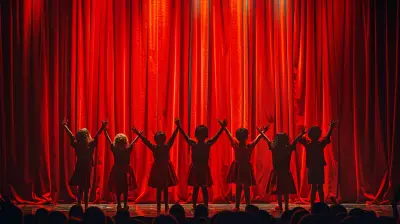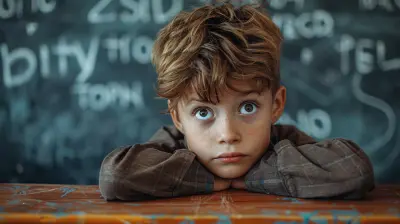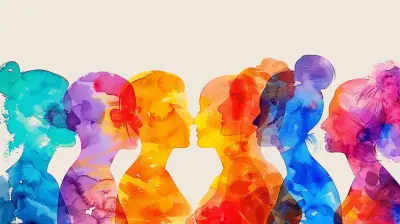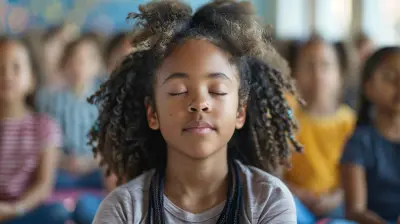The Impact of Music on Language Development
6 April 2025
Music and language—two of the most powerful forces in human development. But have you ever stopped to think about how deeply connected they are? Turns out, those catchy nursery rhymes and sing-along songs do a lot more than just entertain kids (and drive parents slightly insane). They play a massive role in language development.
So, sit back, grab your headphones, and let’s crank up the volume on how music shapes the way we learn to speak, read, and understand the world around us. 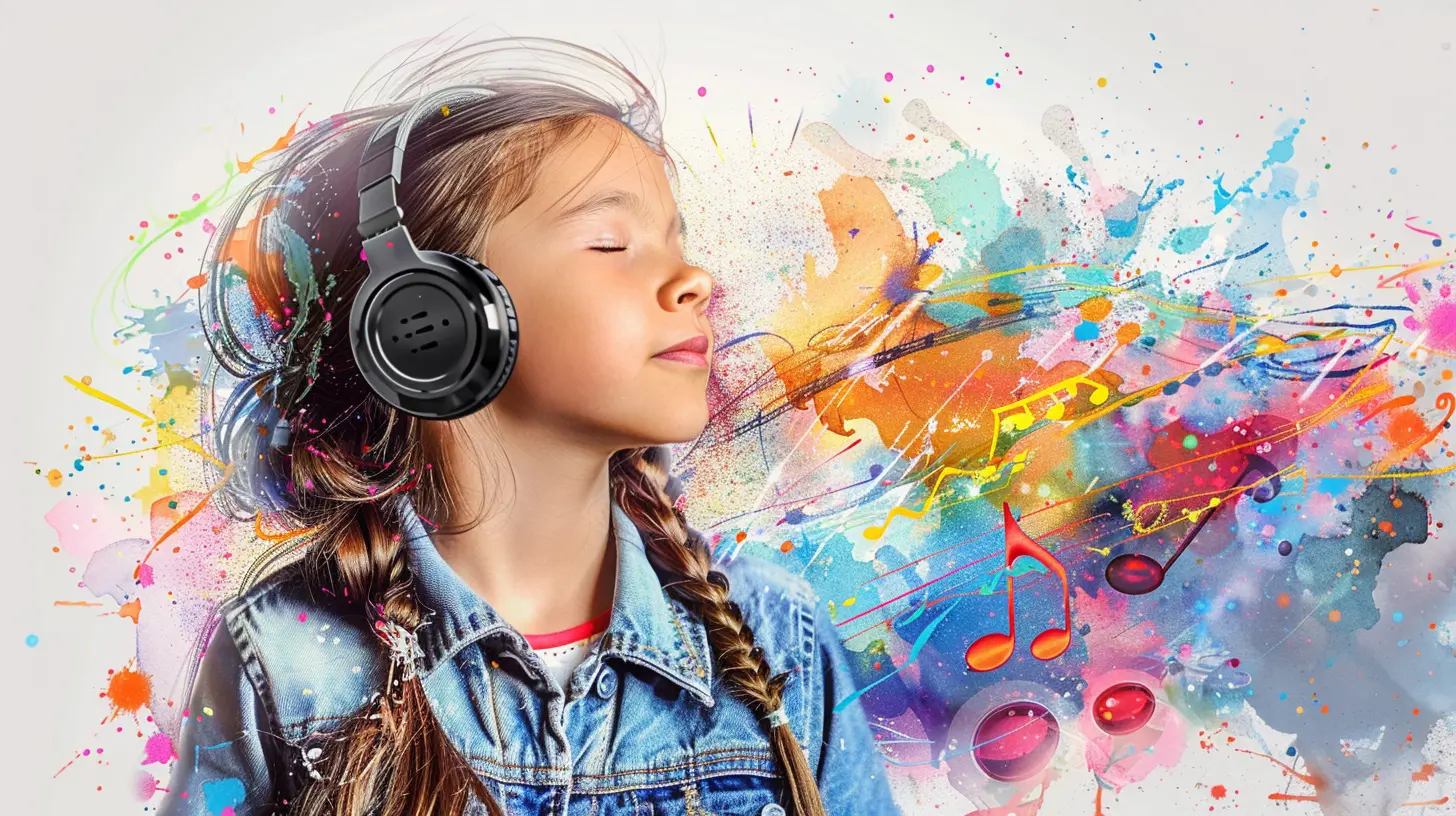
🎵 Music and Language: The Perfect Duo
Music and language go together like peanut butter and jelly—or maybe more like bass and melody. Both rely on rhythm, pitch, and patterns. Think about it—when we speak, we don’t just blurt out words randomly. Our sentences have rhythm. Our voices rise and fall. And guess what? That’s exactly what music does too.From the moment babies start listening to their parents’ voices, they’re tuning into patterns. And music reinforces these patterns in a fun, engaging way. Ever wonder why kids LOVE repeating their favorite songs? It’s not just because "Baby Shark" is catchy (and slightly addictive). It’s because repetition helps them grasp sounds, rhythms, and even sentence structures. 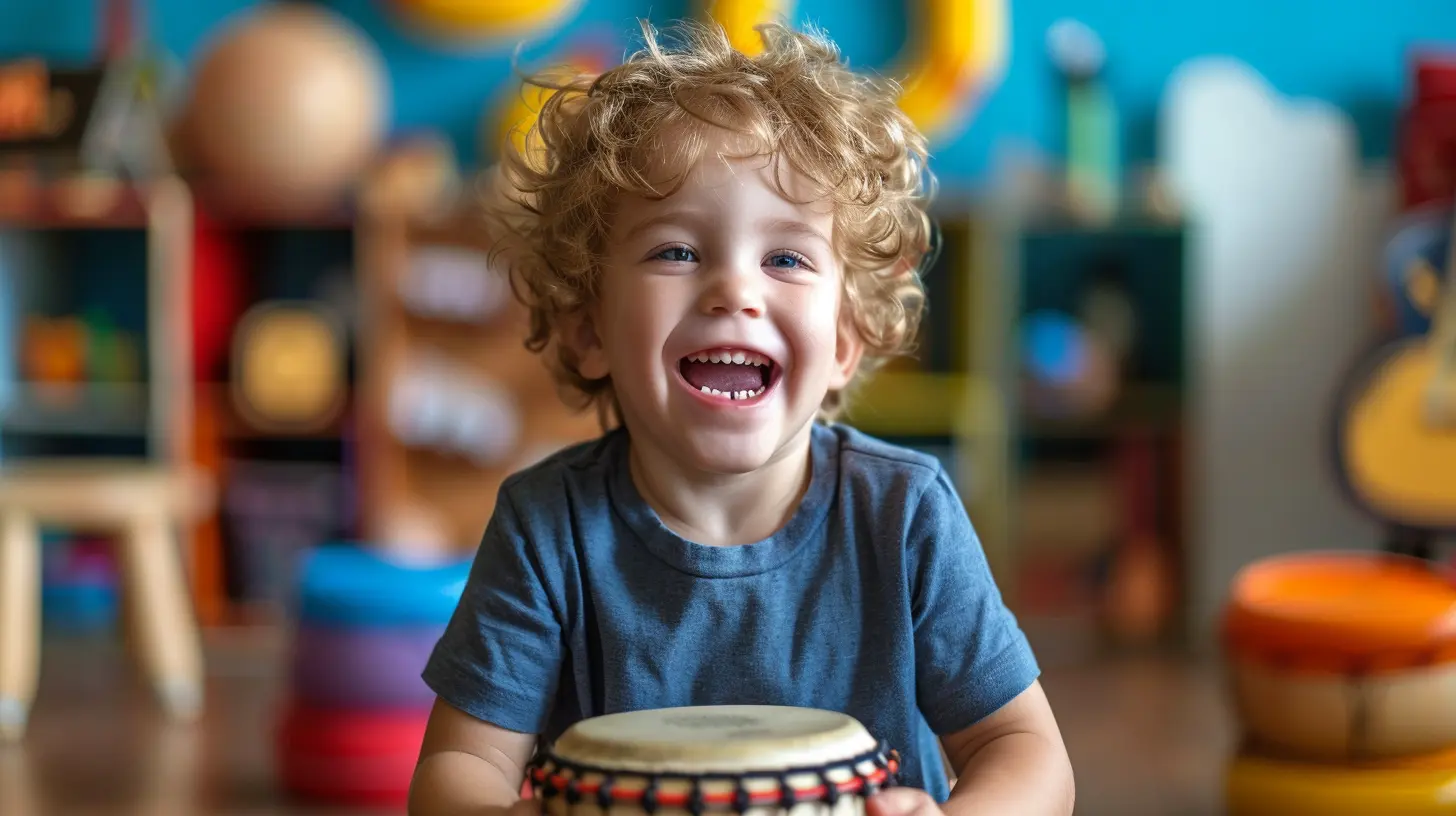
🧠 How Music Boosts Language Development
Alright, let’s break it down. How does music actually help with language development? Turns out, in more ways than we can count!1. Strengthening Phonological Awareness
Phonological awareness is a fancy way of saying, "the ability to recognize and manipulate the sounds in words." And guess what? Music is the ultimate phonological workout.- Songs break words into smaller sound units (think of clapping along to syllables).
- Rhymes help children notice similar sounds, which is crucial for reading and spelling.
- Melody helps kids remember word pronunciations better.
This is why kids who are exposed to music early on tend to have stronger literacy skills later in life. So, yes, all those lullabies and singalongs are doing wonders!
2. Expanding Vocabulary Like a Boss
Ever notice how kids pick up new words faster when they hear them in a song? That’s because music makes learning words feel effortless.- Songs introduce new vocabulary in a memorable way.
- Repetition in lyrics helps words stick in long-term memory.
- Singing encourages pronunciation practice without pressure.
For example, "Old MacDonald Had a Farm" doesn’t just teach kids about animals—it expands their vocabulary with words like "moo," "oink," and "quack." And let’s be real, no one forgets the words to "Twinkle, Twinkle, Little Star."
3. Enhancing Listening Skills & Comprehension
Good communication starts with good listening. And music? It turns listening into an interactive game.- Songs require kids to pay attention to lyrics and follow along.
- Music with actions (like "Head, Shoulders, Knees, and Toes") strengthens listening comprehension.
- Call-and-response songs encourage active engagement.
Basically, music trains the brain to process and understand spoken language more effectively. And when kids get better at listening? They get better at speaking.
4. Improving Pronunciation & Speech Clarity
Songs naturally slow down speech, making it easier to hear and imitate sounds correctly.- Singing stretches out words, making pronunciation clearer.
- Repetitive lyrics help articulate tricky sounds.
- Music encourages speech rhythm, making conversation flow better.
This is why speech therapists often use music as a tool to help children with speech delays. Plus, let’s be honest—belting out a song is way more fun than traditional speech drills.
5. Boosting Confidence & Social Interaction
Language isn’t just about words—it’s about communication. And music is one of the best ways to build confidence in speaking.- Singing in groups encourages kids to express themselves.
- Performing boosts self-esteem and teaches public speaking skills.
- Music connects people, making language learning a social experience.
Ever seen a shy kid light up when they start singing? That’s the power of music giving them the confidence to use their voice. 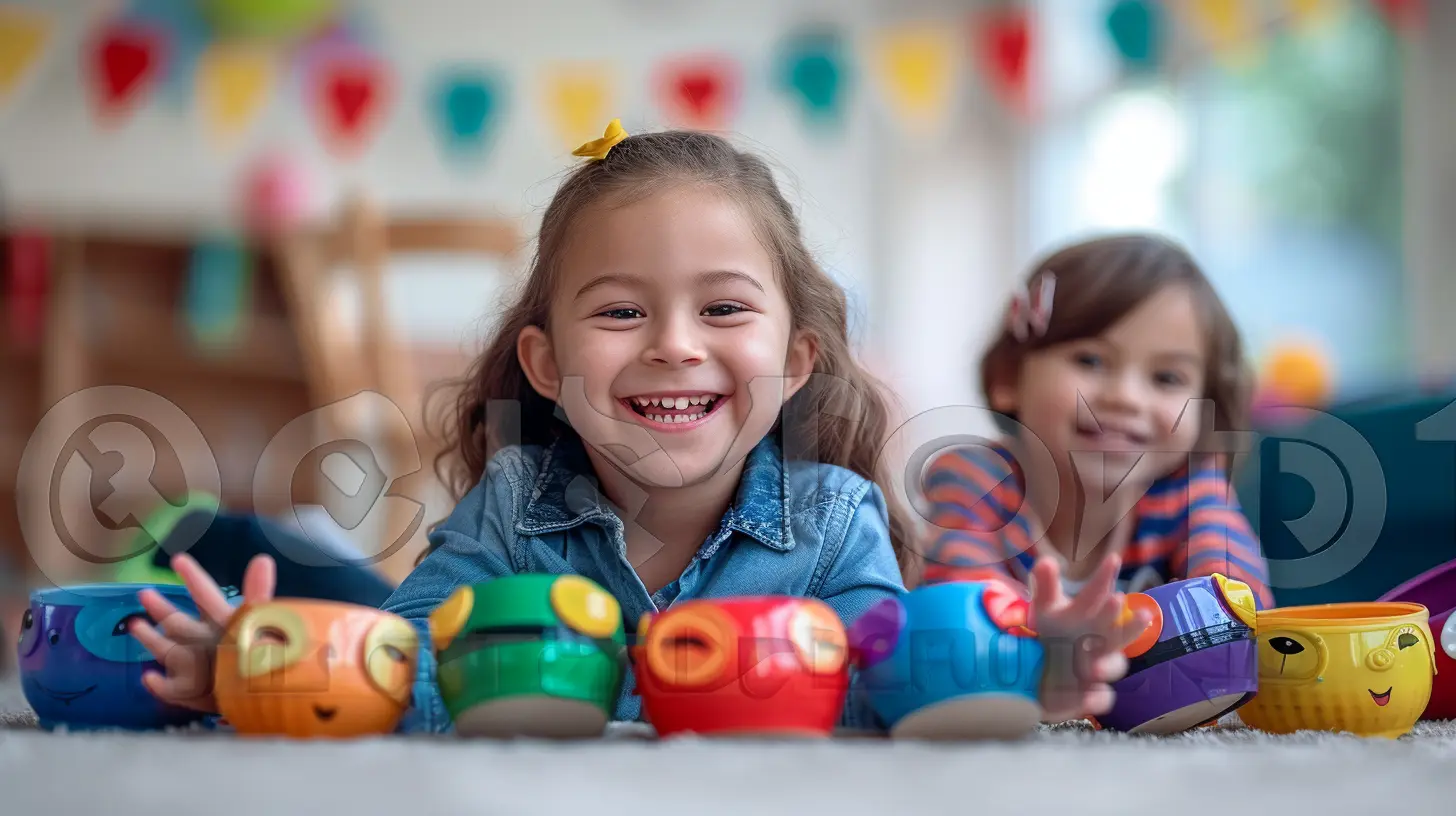
🎶 Music’s Role in Learning Multiple Languages
Think learning a second language is tough? Try doing it without music—it’s a nightmare! Music makes picking up new languages feel natural and effortless.- Melody Helps With Pronunciation – Mimicking the rhythm of a language makes it easier to sound fluent.
- Catchy Songs Reinforce Grammar Rules – Who needs dull grammar drills when you have fun songs?
- Repetition Enhances Retention – Hearing the same phrases in a song cements them in memory.
This is why so many language teachers use songs to help students learn. Ever noticed how some people can remember song lyrics from years ago, but forget what they had for breakfast? That’s the magic of music and memory working together. 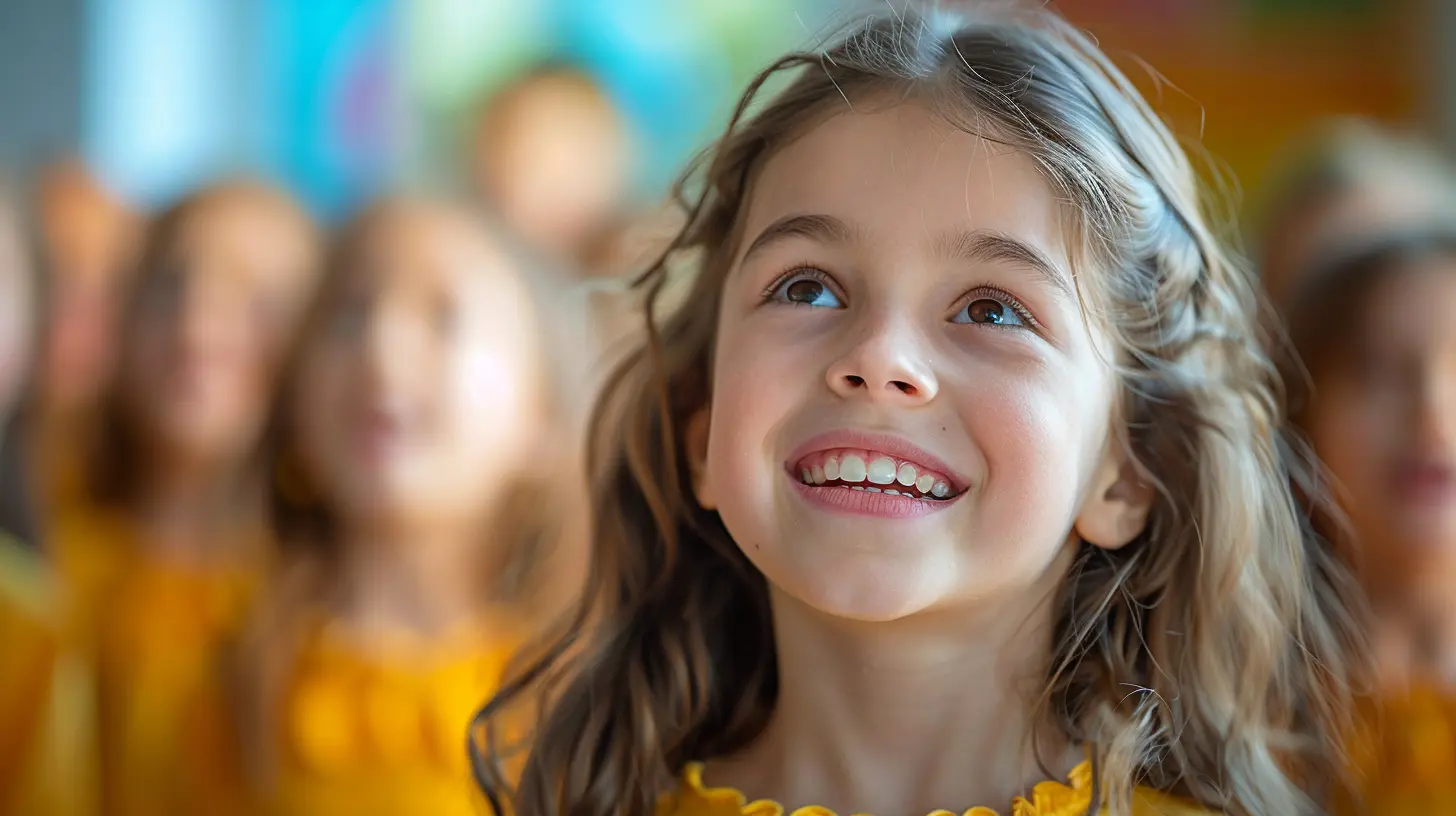
🎧 Music & Language Development in Different Age Groups
Depending on the age, music influences language learning in different ways. Let’s break it down.Infants (0-2 Years)
- Recognizing speech patterns through lullabies.- Responding to rhythm and melody before they can even speak.
- Mimicking sounds from songs to form first words.
Toddlers (2-5 Years)
- Learning new vocabulary through interactive songs.- Developing speech clarity by repeating lyrics.
- Strengthening comprehension by following along with music.
School-Age Kids (6-12 Years)
- Enhancing reading skills through phonics-based music.- Picking up new languages faster through bilingual songs.
- Improving memory and cognitive skills with musical games.
Teens & Adults
- Fine-tuning pronunciation and fluency in foreign languages.- Using music as a stress-free way to build communication skills.
- Strengthening memory retention for educational content.
Long story short? It’s never too early—or too late—to let music work its magic on language development!
🎸 How to Use Music to Boost Language Skills
Want to maximize the language-learning benefits of music? Here are a few fun ways to do it:1. Sing Along to Songs Daily – Whether it’s in the car or during playtime, keep the tunes rolling.
2. Use Rhyming Games – Nursery rhymes and rhyming songs make learning fun and engaging.
3. Introduce Bilingual Songs – Learning a new language? Songs in different languages make it feel effortless.
4. Clap Along to Beats – Helps kids recognize syllables while improving coordination.
5. Make Up Your Own Lyrics – A fun way to reinforce vocabulary and grammar.
6. Encourage Musical Storytelling – Songs with a narrative help with comprehension and sequencing.
Music isn’t just background noise—it’s a language-learning powerhouse.
🎤 Final Thoughts: Why Music is a Language Superpower
Music isn’t just for fun—it’s a secret weapon for language development. From expanding vocabulary to fine-tuning pronunciation, it does way more than we give it credit for.So, the next time you catch yourself humming along to a song, remember—your brain is working harder than you think! And if you’re teaching a child to speak, read, or even learn a second language? Crank up the tunes and let the rhythm do its magic.
Because in the grand symphony of life, music and language were always meant to play together.
all images in this post were generated using AI tools
Category:
Music EducationAuthor:

Eva Barker
Discussion
rate this article
6 comments
Juniper Hill
Music enhances language skills, supporting cognitive growth in young children.
April 27, 2025 at 9:00 PM

Eva Barker
Thank you for your insightful comment! Indeed, music plays a vital role in enhancing language skills and promoting cognitive growth in young children.
Payton Perez
Music truly enriches language skills!
April 18, 2025 at 11:41 AM

Eva Barker
Thank you! Indeed, music enhances language skills by improving memory, pronunciation, and overall communication.
Brooke McCollum
This article effectively highlights the intricate connection between music and language development. By exploring how rhythmic patterns and melodies enhance phonetic awareness and memory, it underscores the importance of integrating musical activities into early education. Such an approach not only enriches language skills but also fosters cognitive and emotional growth in children.
April 13, 2025 at 11:39 AM

Eva Barker
Thank you for your insightful comment! I'm glad you found the connection between music and language development compelling. Integrating musical activities can indeed foster holistic growth in children.
Kiera Meyers
Great insights! Music truly enhances language skills, fostering creativity and connection in learning.
April 9, 2025 at 7:19 PM

Eva Barker
Thank you! I appreciate your thoughts on the powerful role music plays in enhancing language skills and fostering creativity.
Katalina McVicar
This article insightful highlights the profound connection between music and language development. It's fascinating how rhythm and melody can enhance vocabulary and communication skills, making music an essential tool for early learning. Great read!
April 9, 2025 at 10:23 AM

Eva Barker
Thank you for your thoughtful comment! I'm glad you found the connection between music and language development fascinating. Music truly is a powerful tool for enhancing early learning.
Phaedron Sharpe
Great insights! I appreciate how you highlighted the connection between music and language skills. It would be interesting to explore specific musical activities that enhance development.
April 8, 2025 at 3:30 AM

Eva Barker
Thank you! I completely agree—specific musical activities like singing, rhythm games, and instruments can significantly boost language skills. Exploring these in depth could be very beneficial!

